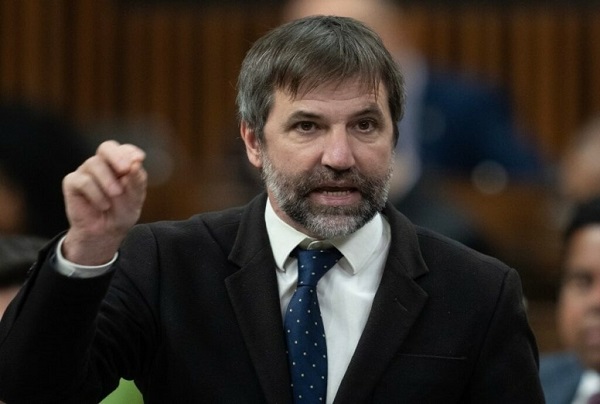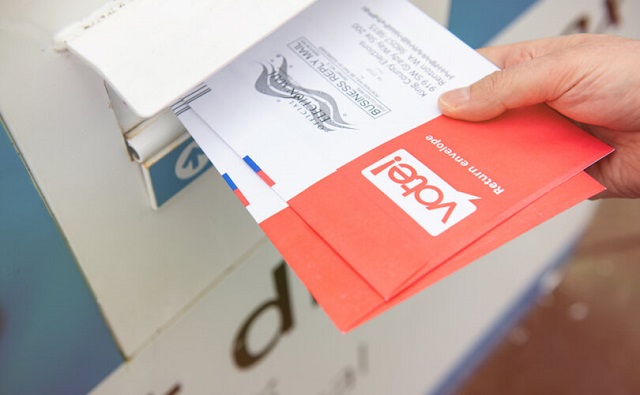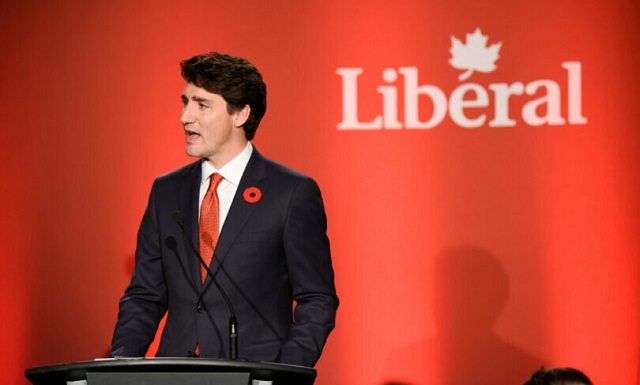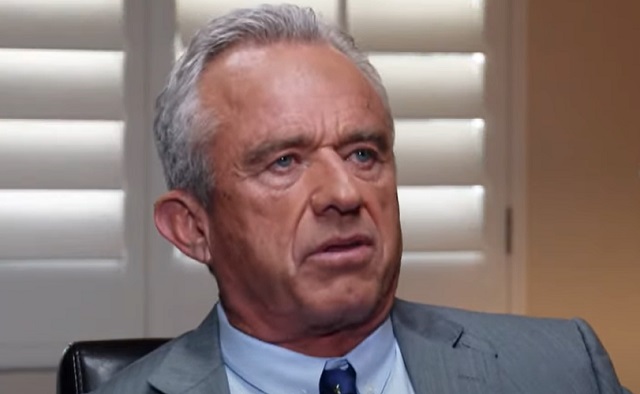Economy
The Cost to Western Canada if Steven Guilbeault Copies Biden’s Assault on LNG

From EnergyNow.ca
By Jim Warren
” if all of the gas exported by Canada to the US from 2014 to 2021, the years encompassing the price depression, had instead been exported to Europe at average European prices, Canadian natural gas revenues would have been US $100.7 billion higher “
What would it cost western Canada’s natural gas producers if the federal government does to them what it did to tidewater export opportunities for petroleum?
This question became topical last week when the Biden Democrats announced they would block construction of new LNG export facilities in the US. It makes sense to get a handle on the size of revenues at stake if future development of LNG export capacity in Canada is similarly at risk. Indeed, it seems quite reasonable to worry that Steven Guilbeault will take inspiration from the Biden decision and try to do something similarly silly in Canada.
Getting pipelines to tidewater is something Canada’s petroleum industry has been counting on to improve export revenues. This was a particularly urgent hope during the eight-year oil price depression that lasted from Fall 2014 until early Winter 2022. It was, and still is, assumed exporting Canadian diluted bitumen (dilbit) into new non-US markets will allow producers to avoid the costly differential charges assessed by American buyers and refiners.
What if scenarios floated during the eight-year price slump showed that had the Northern Gateway and Trans Mountain pipelines been completed, Canadian producers could have earned billions in additional revenues. Estimates of lost revenues ranged from a Fraser Institute estimate of $15.8 billion for 2018 alone to my own low-ball estimate for losses of $7 billion to $9 billion for that same year. Numerous back of the napkin “what if” calculations for lost revenues produced in coffee shops across the prairies helped fuel frustration and anger at federal government environmental policies intended to limit global warming by cancelling pipelines.
Fast forward to 2024 and we can see that similar conditions apply to western Canada’s natural gas sector. The US is virtually the sole export market for Canadian natural gas. Looking back at the period from 2010-2019 we find that the prices paid by US importers for Canadian natural gas were less than half what Europeans were paying. The price spread became exponentially wider beginning in 2016. It peaked in 2022 when the European price was six times higher than the US price. The European gas price will be five times higher than US prices for 2024.
All else being equal, if all of the gas exported by Canada to the US from 2014 to 2021, the years encompassing the price depression, had instead been exported to Europe at average European prices, Canadian natural gas revenues would have been US $100.7 billion higher than what they actually were.
Of course “all else” is far from being equal. The $100.7 billion figure does not account for the cost of converting natural gas to LNG or the added costs of ocean transportation. In addition, the estimate assumes enough Canadian pipelines and tidewater terminals could be built to accommodate all of the gas currently flowing to the US.
The yawning chasm between US and EU prices today is of course largely the result of Russia’s invasion of Ukraine in late February 2022. EU sanctions aimed at Russian energy exports and the destruction of the Nord Stream pipelines has put Europe firmly on track for developing new sources of natural gas.
Notwithstanding the bland platitudes and unreachable targets emanating from the most recent COP conference in the UAE, there are policy makers in many countries who recognize the important role natural gas can play in reducing global GHG emissions. For example, in December 2021 the European Commission made changes to its GHG emissions law. It now allows both nuclear energy and natural gas to be considered suitable transition fuels during the period while renewable options become more viable.
Lately, there has been a popular backlash in Europe and the UK over excessively zealous green transition initiatives. It turns out a lot of people are unwilling to accept additional increases to their cost of living even when told it is necessary to “save the planet.” People won’t stand for a prohibitively expensive green transition. And they never will be willing to freeze in the dark; especially when an acceptable option like natural gas is available.
Biden’s bizarre decision to block the expansion of US LNG export facilities was probably not motivated by a desperate desire or useful effort to curb GHG emissions. It is more likely a ham-handed attempt to staunch the Democrats’ loss of support among the young and the woke. Regardless of Biden’s motivation, we might reasonably worry that Canada’s environment minister will want to copy him. You might think the collapse in support for Canada’s Liberals and common sense would militate against the imposition of any additional half-baked environmental policy. But when has common sense ever intervened in the creation of environmentally virtuous policy on the part of the Liberals in Ottawa?
I have provided my data sources and relevant tables below
Hypothetical question: What if the exports to the US had been exported to Europe?

Source: derived by the author from the sources and data provided below
Natural gas prices for the US and Europe 2022 to 2024 in US$ per million British thermal units (BTUs) 2023 and 2024 figures are forecasts.*

Source: derived from Statist: Natual gas commodity prices in Europe and the United States from 1980 to 2022 with forecasts for 2023 and 2024.
https://www-statista-com.libproxy.uregina.ca/statistics/252791/natural-gas-prices/
Canadian natural gas exports in billion cubic metres (all to US)

Source: Statista. Natural gas exports by pipeline from Canada from 2010 to 2021 (in billion cubic metres).
https://www-statista-com.libproxy.uregina.ca/statistics/567703/natural-gas-exports-from-canada/
Natural gas prices for the US and Europe 2010 to 2024 in US$ per million British thermal units (BTUs) 2023 and 2024 figures are forecasts.*

Source: Statista: Natural gas commodity prices in Europe and the United States from 1980 to 2022 with forecasts for 2023 and 2024.
https://www-statista-com.libproxy.uregina.ca/statistics/252791/natural-gas-prices/
Business
Taxpayers criticize Trudeau and Ford for Honda deal

From the Canadian Taxpayers Federation
Author: Jay Goldberg
The Canadian Taxpayers Federation is criticizing the Trudeau and Ford governments to for giving $5 billion to the Honda Motor Company.
“The Trudeau and Ford governments are giving billions to yet another multinational corporation and leaving middle-class Canadians to pay for it,” said Jay Goldberg, CTF Ontario Director. “Prime Minister Justin Trudeau is sending small businesses bigger a bill with his capital gains tax hike and now he’s handing out billions more in corporate welfare to a huge multinational.
“This announcement is fundamentally unfair to taxpayers.”
The Trudeau government is giving Honda $2.5 billion. The Ford government announced an additional $2.5 billion subsidies for Honda.
The federal and provincial governments claim this new deal will create 1,000 new jobs, according to media reports. Even if that’s true, the handout will cost taxpayers $5 million per job. And according to Globe and Mail investigation, the government doesn’t even have a proper process in place to track whether promised jobs are actually created.
The Parliamentary Budget Officer has also called into question the government’s claims when it made similar multi-billion-dollar handouts to other multinational corporations.
“The break-even timeline for the $28.2 billion in production subsidies announced for Stellantis-LGES and Volkswagen is estimated to be 20 years, significantly longer than the government’s estimate of a payback within five years for Volkswagen,” wrote the Parliamentary Budget Officer said.
“If politicians want to grow the economy, they should cut taxes and red tape and cancel the corporate welfare,” said Franco Terrazzano, CTF Federal Director. “Just days ago, Trudeau said he wants the rich to pay more, so he should make rich multinational corporations pay for their own factories.”
Business
Maxime Bernier warns Canadians of Trudeau’s plan to implement WEF global tax regime

From LifeSiteNews
If ‘the idea of a global corporate tax becomes normalized, we may eventually see other agreements to impose other taxes, on carbon, airfare, or who knows what.’
People’s Party of Canada leader Maxime Bernier has warned that the Liberal government’s push for World Economic Forum (WEF) “Global Tax” scheme should concern Canadians.
According to Canada’s 2024 Budget, Prime Minister Justin Trudeau is working to pass the WEF’s Global Minimum Tax Act which will mandate that multinational companies pay a minimum tax rate of 15 percent.
“Canadians should be very concerned, for several reasons,” People’s Party leader Maxime Bernier told LifeSiteNews, in response to the proposal.
“First, the WEF is a globalist institution that actively campaigns for the establishment of a world government and for the adoption of socialist, authoritarian, and reactionary anti-growth policies across the world,” he explained. “Any proposal they make is very likely not in the interest of Canadians.”
“Second, this minimum tax on multinationals is a way to insidiously build support for a global harmonized tax regime that will lower tax competition between countries, and therefore ensure that taxes can stay higher everywhere,” he continued.
“Canada reaffirms its commitment to Pillar One and will continue to work diligently to finalize a multilateral treaty and bring the new system into effect as soon as a critical mass of countries is willing,” the budget stated.
“However, in view of consecutive delays internationally in implementing the multilateral treaty, Canada cannot continue to wait before taking action,” it continued.
The Trudeau government also announced it would be implementing “Pillar Two,” which aims to establish a global minimum corporate tax rate.
“Pillar Two of the plan is a global minimum tax regime to ensure that large multinational corporations are subject to a minimum effective tax rate of 15 per cent on their profits wherever they do business,” the Liberals explained.
“The federal government is moving ahead with legislation to implement the regime in Canada, following consultations last summer on draft legislative proposals for the new Global Minimum Tax Act,” it continued.
According to the budget, Trudeau promised to introduce the new legislation in Parliament soon.
The global tax was first proposed by Secretary-General of Amnesty International at the WEF meeting in Davos this January.
“Let’s start taxing carbon…[but] not just carbon tax,” the head of Amnesty International, Agnes Callamard, said during a panel discussion.
According to the WEF, the tax, proposed by the Organization for Economic Co-operation and Development (OECD), “imposes a minimum effective rate of 15% on corporate profits.”
Following the meeting, 140 countries, including Canada, pledged to impose the tax.
While a tax on large corporations does not necessarily sound unethical, implementing a global tax appears to be just the first step in the WEF’s globalization plan by undermining the sovereignty of nations.
While Bernier explained that multinationals should pay taxes, he argued it is the role of each country to determine what those taxes are.
“The logic of pressuring countries with low taxes to raise them is that it lessens fiscal competition and makes it then less costly and easier for countries with higher taxes to keep them high,” he said.
Bernier pointed out that competition is good since it “forces everyone to get better and more efficient.”
“In the end, we all end up paying for taxes, even those paid by multinationals, as it causes them to raise prices and transfer the cost of taxes to consumers,” he warned.
Bernier further explained that the new tax could be a first step “toward the implementation of global taxes by the United Nations or some of its agencies, with the cooperation of globalist governments like Trudeau’s willing to cede our sovereignty to these international organizations.”
“Just like ‘temporary taxes’ (like the income tax adopted during WWI) tend to become permanent, ‘minimum taxes’ tend to be raised,” he warned. “And if the idea of a global corporate tax becomes normalized, we may eventually see other agreements to impose other taxes, on carbon, airfare, or who knows what.”
Trudeau’s involvement in the WEF’s plan should not be surprising considering his current environmental goals – which are in lockstep with the United Nations’ 2030 Agenda for Sustainable Development – which include the phasing out coal-fired power plants, reducing fertilizer usage, and curbing natural gas use over the coming decades.
The reduction and eventual elimination of so-called “fossil fuels” and a transition to unreliable “green” energy has also been pushed by the World Economic Forum – the aforementioned group famous for its socialist “Great Reset” agenda – in which Trudeau and some of his cabinet are involved.
-

 espionage10 hours ago
espionage10 hours agoOne in five mail-in voters admitted to committing voter fraud during 2020 election: Rasmussen poll
-

 Business9 hours ago
Business9 hours agoHonda deal latest episode of corporate welfare in Ontario
-

 National1 day ago
National1 day agoAnger towards Trudeau government reaches new high among Canadians: poll
-

 COVID-191 day ago
COVID-191 day agoTrudeau gov’t has paid out over $500k to employees denied COVID vaccine mandate exemptions
-

 International1 day ago
International1 day agoRFK Jr tells EWTN: Politicization of the CIA, FBI, Secret Service under Biden is ‘very troubling’
-

 Opinion2 days ago
Opinion2 days agoThe Climate-Alarmist Movement Has A Big PR Problem On Its Hands
-

 Automotive2 hours ago
Automotive2 hours agoThe EV ‘Bloodbath’ Arrives Early
-

 Brownstone Institute2 days ago
Brownstone Institute2 days agoThe Teams Are Set for World War III







